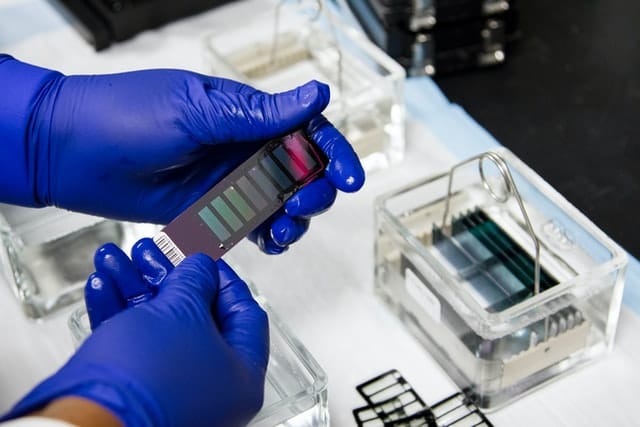
New York to prohibit workplace discrimination due to cannabis use

New York will be one of the first states in country to prevent public and private businesses from discriminating based on cannabis usage.
With cannabis now legal for recreational use in New York, employers and employees are wondering how the new law will impact cannabis use and work. It is extremely common for a business to drug test a potential new hire.
These tests can check for a wide range of illicit substances, and almost all of them look for THC, the main psychoactive compound in cannabis. However the New York Department of Labor has released FAQ guidance making clear what employers and would be employees can expect.
The Marijuana Regulation and Taxation Act passed in 2021 legalized the use of recreational marijuana for individuals ages 21 and older. Notably for employers, the law also amended Section 201-d of the New York Labor Law – which prohibits discrimination by an employer against an employee because of certain lawful outside work activities – to include protections for recreational cannabis use.
More specifically, employers are now prohibited from discriminating against employees based on their use of cannabis outside of the workplace, outside of work hours, and where use does not involve the employer’s equipment or property. This change also applies to workplace drug testing with some exceptions.
New York cannabis drug testing changes
As employers are prohibited from taking adverse action against cannabis use by employees outside of the workplace, this includes drug testing for cannabis. However there are three cases in which drug testing for cannabis may still be permitted:
- An employers is required to take such action by state or federal law;
- The employer would otherwise be in violation of federal law or would lose a federal contract or federal funding; or
- The employee, while working, manifests specific articulable symptoms of impairment that either decrease or lessen the employee’s performance or interfere with the employer’s obligation to provide a health and safe workplace.
In the case of the second exception, guidance states that employers may only test an employee for cannabis if a state or federal law requires drug testing or makes it a mandatory requirement of the position. Employers cannot rely upon this exception to test an employee for cannabis merely because it is allowed or not prohibited by law.
To summarize this aspect, employers are in most cases prohibited from discriminating against an employee (i.e. drug testing) for cannabis use outside of the work place. Despite legalization however there are still prohibitions on cannabis use in the workplace.
Cannabis use in the workplace
The guidance released by the NYDOL gives employers broad discretion to prohibit cannabis use in the workplace. In other words, the employer has the choice whether to prohibit it or not.
The employer also has the option to prohibit possession of cannabis on company property, and has the explicit right to prohibit cannabis use under two circumstances:
- Time that an employee is on-call or “expected to be engaged in work;” and
- Time, “including paid and unpaid breaks and meal periods, that the employee is suffered, permitted or expected to be engaged in work, and all time the employee is actually engaged in work.”
Additionally, the NYDOL does not consider an employee’s private residence used for remote work to be a “worksite” within the meaning of the statute. However employers do have the ability to institute policy prohibiting cannabis use during work hours and take action against employees exhibiting impairment, even while an employee is working remotely.
Overall, the new guidelines released by the NYDOL clear up a lot of confusion surrounding cannabis use and workplace testing, and bring ease to many who are looking forward to the new legal access to cannabis in New York, whenever it becomes available.






